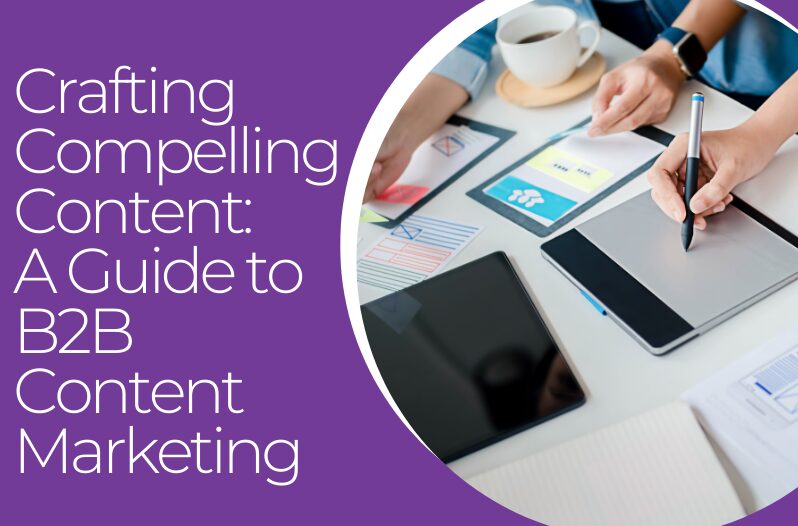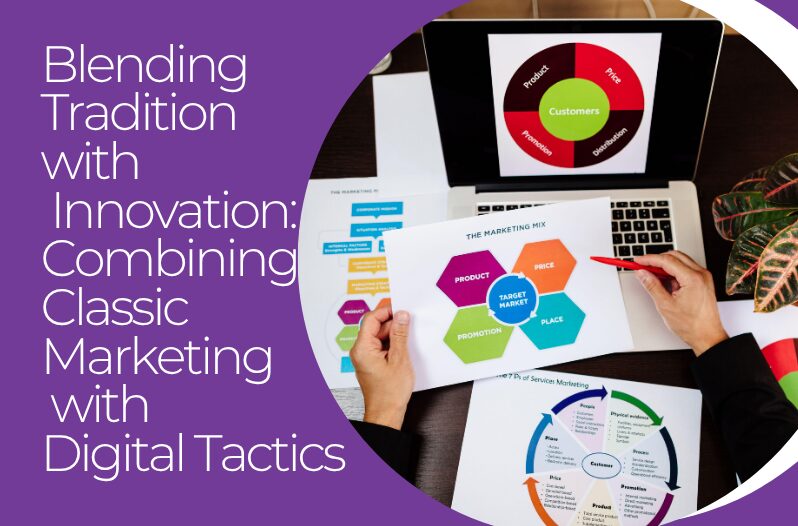In the dynamic landscape of digital marketing, content reigns supreme. For B2B companies aiming to establish a robust online presence and drive meaningful engagement, crafting compelling content is not just a strategy; it’s a necessity. In today’s interconnected world, where information overload is a constant challenge, businesses must find innovative ways to cut through the noise and capture the attention of their target audience.
Understanding the Essence of B2B Content Marketing
B2B content marketing involves creating and distributing valuable, relevant, and consistent content to attract and retain a clearly defined audience – ultimately driving profitable customer action. Unlike B2C content marketing, which often focuses on emotional triggers and impulse buying, B2B content marketing typically centres on providing insightful information, solving problems, and addressing the pain points of businesses.
Key Components of Compelling B2B Content
1.Audience Persona Development
: Before embarking on any content creation journey, it’s essential to understand your target audience inside out. Develop detailed buyer personas that encapsulate the demographics, pain points, challenges, and goals of your ideal B2B customers.
2.Content Strategy and Planning: Crafting compelling content requires a well-defined strategy. Outline your content marketing objectives, identify key performance indicators (KPIs), and establish a content calendar to maintain consistency and relevancy.
3.Educational and Informative Content: B2B buyers are often looking for solutions to complex problems. Create content that educates your audience, provides valuable insights, and positions your brand as a thought leader in your industry. This could include blog posts, whitepapers, case studies, and how-to guides.
4.Visual and Interactive Content: In a digital landscape dominated by short attention spans, visual and interactive content can be incredibly effective in capturing and retaining audience interest. Incorporate infographics, videos, webinars, and interactive tools to make your content more engaging and shareable.
5.Search Engine Optimisation (SEO): Optimise your content for search engines to improve its visibility and accessibility to your target audience. Conduct keyword research, optimise meta tags, and ensure your content is structured and formatted for easy consumption.
7.Promotion and Distribution: Creating great content is only half the battle; promoting and distributing it effectively is equally crucial. Leverage social media platforms, email marketing, influencer partnerships, and paid advertising to amplify the reach of your content and drive traffic to your digital assets.
8.Analytics and Measurement: Monitor the performance of your content marketing efforts using analytics tools and platforms. Track key metrics such as website traffic, engagement rates, conversion rates, and return on investment (ROI). Use this data to iterate and refine your content strategy over time.
Conclusion
In the competitive landscape of B2B marketing, crafting compelling content is not just about selling products or services; it’s about building relationships, fostering trust, and delivering value to your audience. By understanding the unique needs and preferences of your target customers, and implementing a strategic approach to content creation and distribution, you can elevate your B2B content marketing efforts to new heights of success. Remember, in the world of digital marketing, content is king, and crafting compelling content is the key to unlocking the full potential of your B2B brand.





